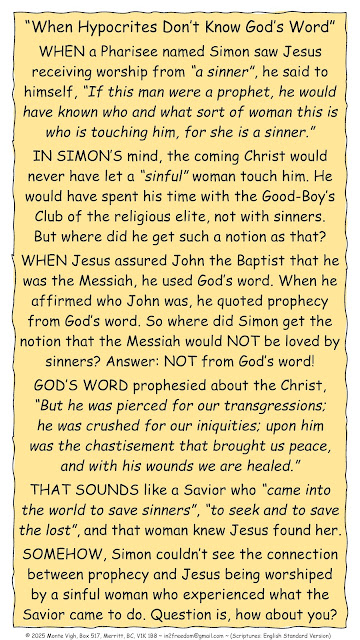In that same hour he rejoiced in the Holy Spirit and said, “I thank you, Father, Lord of heaven and earth, that you have hidden these things from the wise and understanding and revealed them to little children; yes, Father, for such was your gracious will.
All things have been handed over to me by my Father, and no one knows who the Son is except the Father, or who the Father is except the Son and anyone to whom the Son chooses to reveal him.” (Luke 10:21-22)
One of the biggest things I want people to know is that eternal life is to KNOW God. Jesus said, “And this is eternal life, that they know you, the only true God, and Jesus Christ whom you have sent” (John 17:3).
Yes, that is the essence of what it means to receive eternal life through faith in Jesus Christ. Jesus has secured the salvation by which we can return to the God who created us and know him as Father, Son, and Holy Spirit.
This means that our daily interest should be in how well we know God. And, for some of us (at least people like me), how well I know God rests completely on how he feels about knowing me.
The stage on which Jesus has made his heart known to me over the years has been one littered by broken relationships. I grew up in a family that was broken. My attachment-light got stuck in the “always on” position because I was desperate to not miss the hope-springs-eternal time that someone might actually want to attach to me. When I learned that the term “hyper-vigilant” describes a mindstate that has been trained to be on guard against danger, I wanted to know how to bring that into my relationship with God.
Or, how God was shining his spotlight onto my broken radar system so he could heal what was wounded and bring me to peace in my relationship with him.
Since I had my first conscious awareness of God’s interest in me almost 6 decades ago, and then learned how to listen to him in his word in the most real and personal of ways almost 33 years ago, I can chart a relationship with God that has been growing because I am God’s child. My security with him doesn’t rest on how well I hang on to him, but on how settled his love is for me. My significance to him doesn’t depend on what I do for good, but what his goodness has delighted in for me before I was even created. My acceptance with God doesn’t rest on my good behavior that must always be that 1 ounce more than anything I do wrong. Rather, my acceptance with the Triune God rests on him accepting me in his beloved Son.
No matter who I talk with, and no matter who I imagine might read this, my supreme interest is in how they know God. I regularly remind people to see the grace and peace of God in the Beatitudinal Valley because the way God blesses us is typically so different than religious (and irreligious) life has taught us. We need to attach to God in our poverty of spirit in order to know what it means to truly have peace with God.
Today it feels like God is comforting me in some of the most painful losses I have experienced as he shows me the reality of his desire to find me and have me as his own. Yes, the Creator of the heavens and the earth. Yes, the judge of all creation. Yes, the eternal Father, the glorious Son, the comforting Holy Spirit. They have a personal desire for me to know them and have gone through hell (so to speak) to have me.
If no one has told you this, stop pretending, and meet with God as you are. Tell “our Father in heaven” how you are doing. Be the child. Lay your complaints before him. Tell him what you don’t understand. Be honest. Be real.
And then listen.
Yes, open God’s word and listen to him. He is speaking. His Holy Spirit is with us to teach us all things and bring to our remembrance things we have already known. Whatever stands out, talk to him like that is what he is saying to you. Converse. Dialogue. Meditate on what he says. Cling to it with all your heart.
And today, let my testimony that learning “the Son CHOOSES (desires) to reveal” the Father to his beloved brothers encourage you that he will do the same for you as much as for me. Why? Because the level ground at the throne of grace is faith. Not necessarily great faith. Not even mature faith. Just faith that comes like a child and wants to get to know God. Yes, get to KNOW him!
Eternal life comes through believing in Jesus Christ. And Jesus gives eternal life to us because we must be alive to know the Triune God. As John wrote, “In him (Jesus) was life, and the life was the light of men. The light shines in the darkness, and the darkness has not overcome it” (John 1:4-5).
The darkness has not overcome Jesus’ work to pour the love of God into my heart by the Holy Spirit he has given us. Come to Jesus as you are and let him overcome the darkness in your life so he can lead you to know God better than you have ever known him before.
© 2025 Monte Vigh ~ Box 517, Merritt, BC, V1K 1B8
Email: in2freedom@gmail.com
Unless otherwise noted, Scriptures are from the English Standard Version (The Holy Bible, English Standard Version. ESV® Text Edition: 2016. Copyright © 2001 by Crossway Bibles, a publishing ministry of Good News Publishers.)







